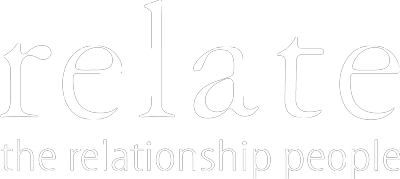Study shows 18% of married or cohabiting couples are in distressed relationships
A distressed relationship is defined as a relationship where issues and disagreements are severe leading to clinically significant negative impact on wellbeing. Couples in distressed relationships said they regularly considered separation or divorce, quarrelled, regretted being in their relationship and felt unhappy together. This level of relationship distress also increases the risk of health problems as research shows clear links between relationship distress and depression, anxiety**, increased blood pressure and heightened risk of heart attacks***.
The research also highlighted families with children under-16 as the group most likely to be affected by relationship distress with 22% of parents of under-16s reporting a severe level of relationship distress, that’s 1.4 million UK families****.
We’re concerned that these poor quality relationships are pushing couples, especially families, to breaking point. Many families are struggling to access the support they need. While counselling can help people find a way out of relationship crisis the cost is stopping families from getting the help they need. As Relate counsellor, Arabella Russell, explains:
“Through my work I see countless couples in distressed relationships. The distress comes in the disconnection and it’s a very painful place to be. Often the couples I see are arguing constantly with pressures such as jobs, finances and childcare putting their relationships under real strain. The impact this can have on the family is huge. Counselling can help couples to reconnect but the cost can be a deterrent to some.”
We believe families shouldn’t be prevented from getting the help they need because they can’t afford it. If you would like to make a donation to help subsidise vital services to support families whose relationships and finances are under intense pressure please contact Relate MK on 01908 310010 or email
Watch our video about families at Breaking Point
*Levels of relationship distress were estimated by analysing data from the Understanding Society survey. The most recent data were released November 2015, and the data were analysed over March-April 2016. The sample of people in relationships (married or cohabiting) was 20,980. Relationships were characterised as ‘distressed’ or ‘non-distressed’ by calculating respondents’ answers to questions from a scientifically validated scale to measure relationship quality and the severity of relationship problems. For further information on the methodology, please see the research report.
**Whisman M. (2001) The association between depression and marital distress. In Beach, S. ‘Marital and Family Processes in Depression: A Scientific Foundation for Clinical Practice‘. Washington DC: American Psychological Association, 3-24 8
Conger, R. D., & Elder Jr, G. H. (1994) Families in troubled times: The Iowa youth and families project. Families in troubled times: Adapting to change in rural America, 3-19
***3 Holt-Lunstad J., Birmingham, W., and Jones, B. (2008) Is there something unique about marriage? The relative impact of marital status, relationship quality, and network social support on ambulatory blood pressure and mental health. Ann Behav Med., 35(2), 239-44; Grewen, K., Girdler, S., and Light, K. (2005) Relationship quality: effects on ambulatory blood pressure and negative affect in a biracial sample of men and women. Clinical Methods and Pathophysiology 10(3), 117- 124; Orth-Gomer, L., Wamala, S., Horsten, M., Schenck-Gustafsson, K., Schneiderman, N. and Mittelman, M. (2000) Marital stress worsens prognosis in women with coronary heart disease: The Stockholm Female Coronary Risk Study. Journal of the American Medical Association, 284, 3008-3014 4 Coyne, J., Rohrbaugh, M., Shoham, V., Sonnega, J.
****We follow the ONS definition of ‘families’ in the Families and Households statistical bulletins: ‘A family is a married, civil partnered or cohabiting couple with or without children, or a lone parent with at least one child.’


